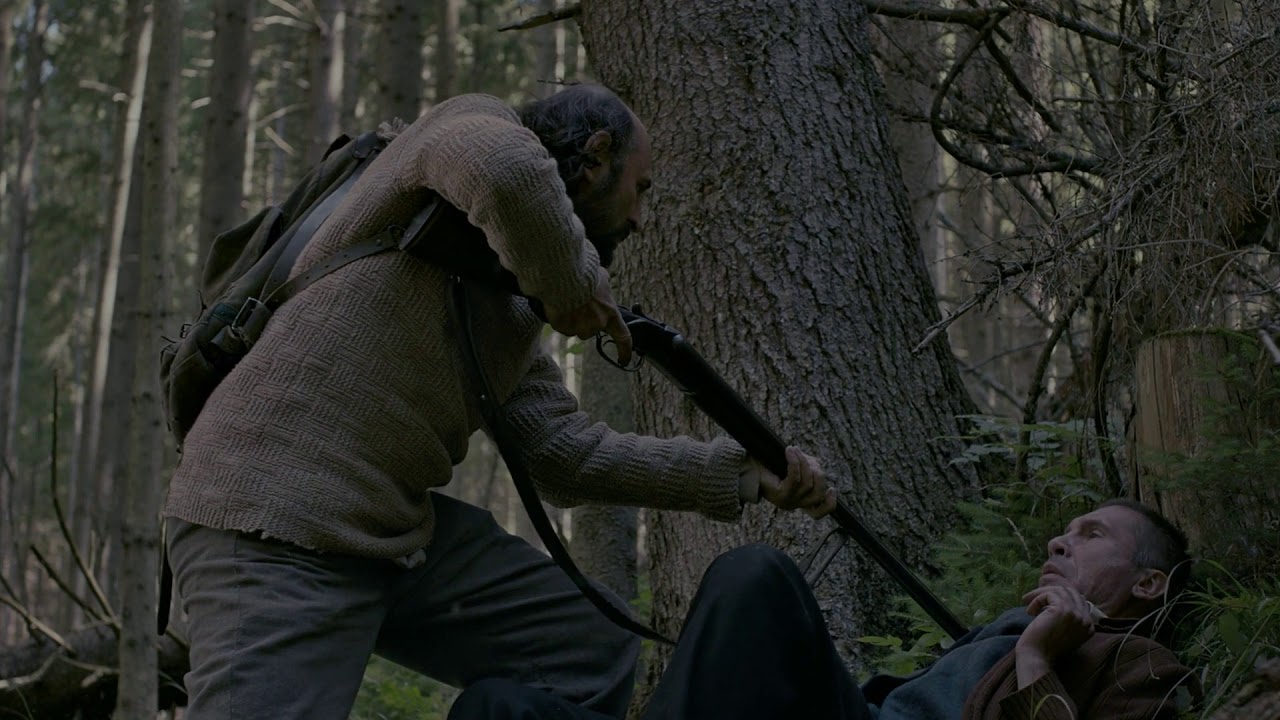Sarajevo Film Review: ‘Love 1. Dog’
By Alissa Simon
LOS ANGELES (Variety.com) – When an isolated forest ranger rescues a mysterious young woman he finds beaten and unconscious, his long-suppressed emotions surge out of control in Romanian multi-hyphenate Florin Şerban’s third feature “Love 1. Dog.” Set in some indeterminate time during the 20th century, this enigmatic but engrossing drama may look completely different from Şerban’s 2010 Berlinale prize-winner, “If I Want to Whistle, I Whistle,” or his 2015 sophomore outing, “Box,” but like these films, “Love 1” has at its core a battle of wills between a male and a female. Further festival travel is likely, with potential longer shelf life as the first of an announced trilogy.
Middle-aged Simion (Valeriu Andriuţă, the priest in Cristian Mungiu’s “Beyond the Hills”) lives rough in a remote cabin built by his grandfather, high on a pine-forested mountain. His only companions are a fierce shepherd-mix dog that he has never bothered to name and a donkey to haul fuel for his fire. As he patrols the woods with his rifle, his belt bristling with cartridges, he looks like a fearsome brigand.
One day, Simion returns to the cabin carrying the limp and battered form of pretty, long-haired Irina (Cosmina Stratan, also best-known for “Beyond the Hills.”) Although her jaw is nearly broken, her eyes blackened and her body full of scrapes and bruises, she refuses his offer to transport her to a doctor in the village. Simion’s gentle examination of her injuries counters both Irina’s — and the audiences’ — expectations.
Left alone in the cabin while Simion is in the woods, and prevented from leaving by the dog, city girl Irina cautiously tries to make friends with the canine, and later, with his master. As she questions the forester about his rather limited life experience and misanthropic world view, she very quickly seems to get his number.
Although Irina’s background and feelings remain opaque to both Simion and the viewers, the sexually frustrated ranger falls hard for his accidental guest. And this overwhelming swelling of love stimulates in Simion a range of other unexpected feelings and desires: protectiveness, lust, jealousy, paranoia and even the urge to tell jokes.
Up until an ill-fated outsider arrives during the film’s final 30 minutes,Şerban makes the magnificent and threatening landscape the film’s most important supporting character. The remoteness of the location and the ambient sound design, which includes howling wolves and barking dogs, lends the narrative a fairy-tale quality. Meanwhile, the sparsely used string score by Pauchi Sasaki slyly evokes tension, with its unsettling notes reminiscent of a horror film or thriller. As viewers puzzle over what will happen between Simion and Irina, thoughts of “Beauty and the Beast” and “Bluebeard” come to mind.
The fact that the screenplay leaves so many things undefined allows attentive viewers to become more involved in the story and fill in the narrative gaps in their own minds. But it is this very quality that will likely limit the movie to the festival circuit. Certainly, many will find the character of Irina troubling. While Andriuţă clearly suggests a besotted man completely undone by his feelings, Stratan’s Irina is a cipher; we may guess the motivations behind her actions, but the actress never suggests the workings of her character’s mind. It’s impossible to know whether this is due to Şerban’s direction or a failure on the part of Stratan.
Per press notes, “Love 2. America,” will premiere at a festival this fall, but will feature completely different characters and situations.

